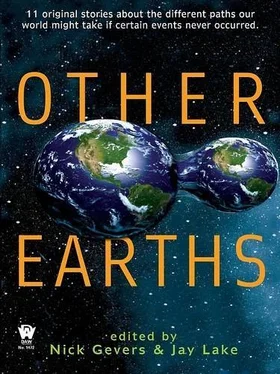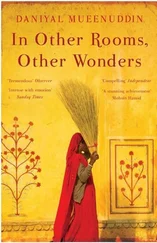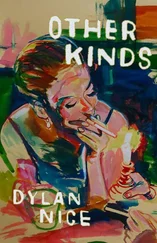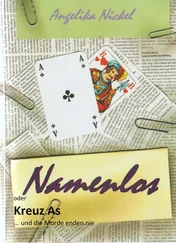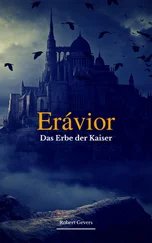Nick Gevers - Other Earths
Здесь есть возможность читать онлайн «Nick Gevers - Other Earths» весь текст электронной книги совершенно бесплатно (целиком полную версию без сокращений). В некоторых случаях можно слушать аудио, скачать через торрент в формате fb2 и присутствует краткое содержание. Жанр: Фантастика и фэнтези, на английском языке. Описание произведения, (предисловие) а так же отзывы посетителей доступны на портале библиотеки ЛибКат.
- Название:Other Earths
- Автор:
- Жанр:
- Год:неизвестен
- ISBN:нет данных
- Рейтинг книги:3 / 5. Голосов: 1
-
Избранное:Добавить в избранное
- Отзывы:
-
Ваша оценка:
- 60
- 1
- 2
- 3
- 4
- 5
Other Earths: краткое содержание, описание и аннотация
Предлагаем к чтению аннотацию, описание, краткое содержание или предисловие (зависит от того, что написал сам автор книги «Other Earths»). Если вы не нашли необходимую информацию о книге — напишите в комментариях, мы постараемся отыскать её.
Other Earths — читать онлайн бесплатно полную книгу (весь текст) целиком
Ниже представлен текст книги, разбитый по страницам. Система сохранения места последней прочитанной страницы, позволяет с удобством читать онлайн бесплатно книгу «Other Earths», без необходимости каждый раз заново искать на чём Вы остановились. Поставьте закладку, и сможете в любой момент перейти на страницу, на которой закончили чтение.
Интервал:
Закладка:
“Unlike my daddy, who came with guns blazing and the ace of death in his eye, I had the shits when I entered Vietnam, and several degrees of fever. I lay in the bottom of the boat, trying to hold in my guts, and avoided looking at the sky, which was playing its usual tricks, only with greater frequency—to look at it intensified my fever. We had some trouble at the border post. The Vietnamese run a tighter ship than does Cambodia, and since we didn’t have enough money for a respectable bribe, the officials threatened to confiscate our boat; but then Jordan helped them get an overloaded pick-up unstuck from a muddy ditch, and after that they were all smiles and stamped our passports and waved us through into a portion of the Mekong renowned for its whirlpools. We were cautioned that much larger craft than ours had been sucked under, but we negotiated this treacherous stretch without incident and, below the town of Chau Doc, entered an area known as the Nine Dragons, where the river split into nine major channels, and there were as well minor channels, islands, and a maze of man-made canals spider-webbing an enormous area. At a riverside gas station, we received directions to the Kinh Dong Tien, the canal that would carry us toward the tea forest.
“The boating life on the canals was more lively than we had yet encountered, even in the vicinity of Phnom Penh, and was so dense that signs on the riverbank directed traffic, warning when not to pass on the left and such. There were mobile floating rice mills, boats loaded with construction supplies, with coconuts, plumbing fixtures, furniture, watermelons, and so forth, and the banks were crowded with shacks, and beyond them were fields reeking of DDT. People stared open-mouthed at us and laughed at our wretched condition—covered with insect bites and sores, putting along in that wreck of a boat, the rudder held on with adhesive tape, the engine sputtering. Some of them, moved by charitable impulse, offered assistance, and others offered produce and drinking water, but I was in no mood to accept their charity. My fever had worsened, and the spiritual darkness that afflicted me had deepened to the point that I saw everything through a lens of distaste and loathing. Every smile seemed mocking, every friendly gesture masked an inimical intent, and I wanted nothing to do with this infestation of small brown people who swarmed over the delta, polluting it with their pesticides, with their shitting, squalling babies, and their brute insignificance. ‘You don’t go hunting termites with a rifle,’ Daddy once told me. ‘You poison their fucking nest.’ Recalling that comment, I thought maybe he had gone to Vietnam after all …”
Not long after the events described in this passage, Cradle Two’s narrator (and, I would guess, Cradle Two himself) grew too ill go on, or, as the narrator implies, he used illness as an excuse for quitting because his fear of what lay ahead came to outweigh the pull he felt to complete the journey. After being treated at a local clinic, he recuperated in Phnom Penh and there wrote the ending to the book, claiming to be in mental communion with a multiplicity of Thomas Cradles, several of whom managed to enter the tea forest; yet even if you accepted this to be true, it was not a true resolution—he lost contact with the various Cradles once they passed beyond the edge of the forest, and so he contrived an ending based on clues and extrapolation.
I had been wise not to emulate Cradle Two’s journey to the letter, I realized. As I’ve mentioned, the lifestyle he was forced to adopt due to lack of funds left him prone to disease and injury, whereas I, traveling in comfort aboard the Undine , had maintained my health. I had no doubt that I would see journey’s end; but now that I was on the final leg, I debated whether or not I wanted to see it. The spiritual darkness remarked on by Cradle Two’s narrator had descended upon me in full, though it might be more accurate to say that my social veneer had been worn away by the passage along the river and my dark nature revealed. I understood my essential character to be cold and grasping, violent and cowardly, courageous enough should my welfare demand it, yet terrified of everything, and I was, for the most part, comfortable with that recognition. (All men possessed these qualities, although I—and, I assumed, my fellow Cradles—must have them in spades.) When Kim called, presumably to report on her reading of The Tea Forest , I refused to answer. She rang and rang, calling every half hour; I switched off the satellite phone, not wishing to be distracted from steeping in my own poisonous spirit, basking amid thoughts that uncoiled lazily, turgidly, like serpents waking from a long sleep …like Cradle Two’s ornate sentences. Yet as my bleakness grew, so did my fear. I wanted to retreat from the delta, to return to my old secure life. The fear was due in large measure to what I saw whenever I set foot out of the cabin. As we drew near Phu Tho, the hamlet that served as the jumping-off place for the tea forest, the changes that twitched and reconfigured the clouds, that caused mirrors to vanish from walls and rooftops to assume new outlines, became constant, and I felt myself to be the only solid thing in the landscape. It was like watching time-lapse photography. A village glided past, and I saw tin roofs rippling with change, acquiring rust, brightening with strips of new tin, dimpling with dents that would the next second be smoothed out, and a group of people coming from their houses to stare and wave would shift in number and alignment, vanishing and reappearing, wearing shabbier or more splendid clothes, and the sky would darken with running clouds, lighten and clear, the clouds then reoccurring, assuming different shapes, and the green of the fields would vary from a pale yellow-green to a deep viridian, and every shade in between; and Lan at his post in the prow, he would change, too, his skull narrowing and elongating, stubble sprouting from his chin, one leg withering, a cane materializing by his hand—yet before long he was hale once again. I sequestered myself in the cabin, doing my best to ignore disappearing pots and suddenly manifesting piles of dirty clothing. I had nothing to guide me through this leg of the journey—I had gone farther along the path than Cradle Two, and his novel made no mention of this phenomenon. On half a dozen occasions, I was on the verge of ordering Deng to turn the boat and make for Phnom Penh, but I persevered, though my heart fluttered in my chest, itself registering (or so I feared) the process of change as we slipped back and forth between universes, approaching an unearthly nexus. And then, less than five miles from Phu Tho, either the changes ceased or they became unobservable. We had reached a place where all things flowed into one, the calm at the heart of the storm.
Phu Tho itself was unremarkable, a collection of small concrete-block houses, painted in pastel shades, gathered about a landing and a ranger station (a mosquito-infested tin hut) where you gained admission to the national park beyond, a wetlands that contained the tea forest. But the canal and its embankment in the vicinity of Phu Tho was a graveyard of boats: motor launches, rafts, dinghies, sailboats of every size, barges. Thousands had been dragged onto land and an uncountable number of others scuttled—in order to clear a channel, I conjectured, though that reason no longer applied, for the channel had been blocked with submerged and partially submerged craft, and our progress was halted more than a mile from the hamlet. To reach it, I would have to pick my way on foot across the drowned hulks of a myriad boats.
We arrived at our stopping point in early morning, when drifts of whitish fog lay over all, ghosting the forest of prows and masts emerging from the water and the wreckage of crushed and capsized hulls spilling over the shore as if a tsunami had driven them to ruin. The majority (like the Undine ) were adorned with painted eyes to drive away evil spirits, and these could be seen peering at us through the gauzy cover, seeming to blink as the fog thickened and thinned—it was an eerie and disconcerting sight, its effect amplified by the funereal silence that held sway, accented by the slop of the tide against the houseboat, an unsavory sound that reminded me in its erratic rhythm of an injured cur licking a wound. The people we had talked to along the canals would surely have told us of this obstruction, and it followed, then, that Phu Tho, this Phu Tho, must be a singular place designed to mark journey’s end for every Thomas Cradle (excepting those who failed to complete their journeys), and that in other Phu Thos, life went on as always, the canal busy with its usual traffic, and that I was, despite Lan’s presence, for all intents and purposes, alone.
Читать дальшеИнтервал:
Закладка:
Похожие книги на «Other Earths»
Представляем Вашему вниманию похожие книги на «Other Earths» списком для выбора. Мы отобрали схожую по названию и смыслу литературу в надежде предоставить читателям больше вариантов отыскать новые, интересные, ещё непрочитанные произведения.
Обсуждение, отзывы о книге «Other Earths» и просто собственные мнения читателей. Оставьте ваши комментарии, напишите, что Вы думаете о произведении, его смысле или главных героях. Укажите что конкретно понравилось, а что нет, и почему Вы так считаете.
